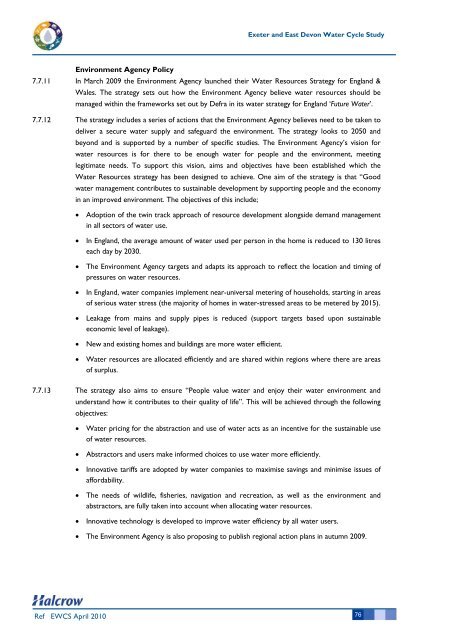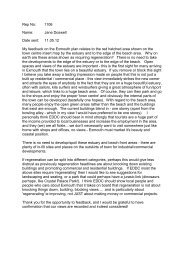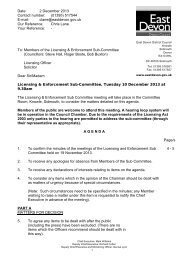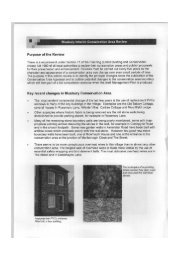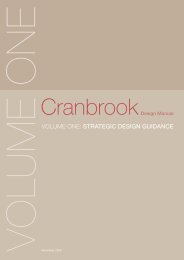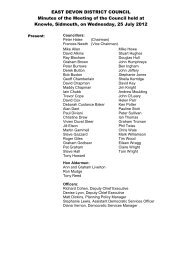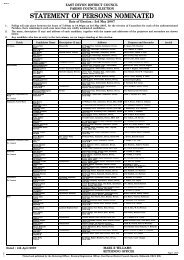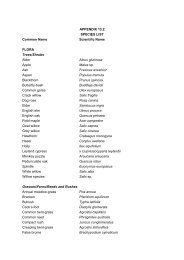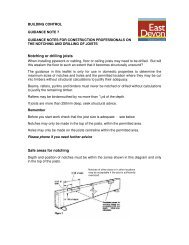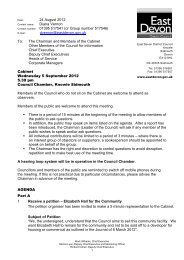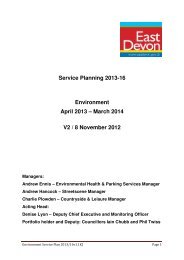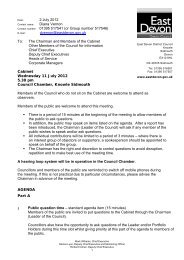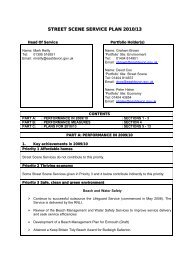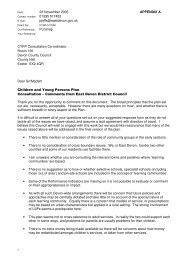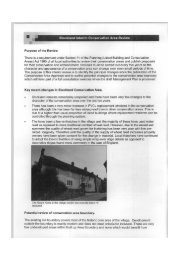Water Cycle Study - East Devon District Council
Water Cycle Study - East Devon District Council
Water Cycle Study - East Devon District Council
You also want an ePaper? Increase the reach of your titles
YUMPU automatically turns print PDFs into web optimized ePapers that Google loves.
Ref EWCS April 2010<br />
Exeter and <strong>East</strong> <strong>Devon</strong> <strong>Water</strong> <strong>Cycle</strong> <strong>Study</strong><br />
Environment Agency Policy<br />
7.7.11 In March 2009 the Environment Agency launched their <strong>Water</strong> Resources Strategy for England &<br />
Wales. The strategy sets out how the Environment Agency believe water resources should be<br />
managed within the frameworks set out by Defra in its water strategy for England ‘Future <strong>Water</strong>’.<br />
7.7.12 The strategy includes a series of actions that the Environment Agency believes need to be taken to<br />
deliver a secure water supply and safeguard the environment. The strategy looks to 2050 and<br />
beyond and is supported by a number of specific studies. The Environment Agency’s vision for<br />
water resources is for there to be enough water for people and the environment, meeting<br />
legitimate needs. To support this vision, aims and objectives have been established which the<br />
<strong>Water</strong> Resources strategy has been designed to achieve. One aim of the strategy is that “Good<br />
water management contributes to sustainable development by supporting people and the economy<br />
in an improved environment. The objectives of this include;<br />
• Adoption of the twin track approach of resource development alongside demand management<br />
in all sectors of water use.<br />
• In England, the average amount of water used per person in the home is reduced to 130 litres<br />
each day by 2030.<br />
• The Environment Agency targets and adapts its approach to reflect the location and timing of<br />
pressures on water resources.<br />
• In England, water companies implement near-universal metering of households, starting in areas<br />
of serious water stress (the majority of homes in water-stressed areas to be metered by 2015).<br />
• Leakage from mains and supply pipes is reduced (support targets based upon sustainable<br />
economic level of leakage).<br />
• New and existing homes and buildings are more water efficient.<br />
• <strong>Water</strong> resources are allocated efficiently and are shared within regions where there are areas<br />
of surplus.<br />
7.7.13 The strategy also aims to ensure “People value water and enjoy their water environment and<br />
understand how it contributes to their quality of life”. This will be achieved through the following<br />
objectives:<br />
• <strong>Water</strong> pricing for the abstraction and use of water acts as an incentive for the sustainable use<br />
of water resources.<br />
• Abstractors and users make informed choices to use water more efficiently.<br />
• Innovative tariffs are adopted by water companies to maximise savings and minimise issues of<br />
affordability.<br />
• The needs of wildlife, fisheries, navigation and recreation, as well as the environment and<br />
abstractors, are fully taken into account when allocating water resources.<br />
• Innovative technology is developed to improve water efficiency by all water users.<br />
• The Environment Agency is also proposing to publish regional action plans in autumn 2009.<br />
76


